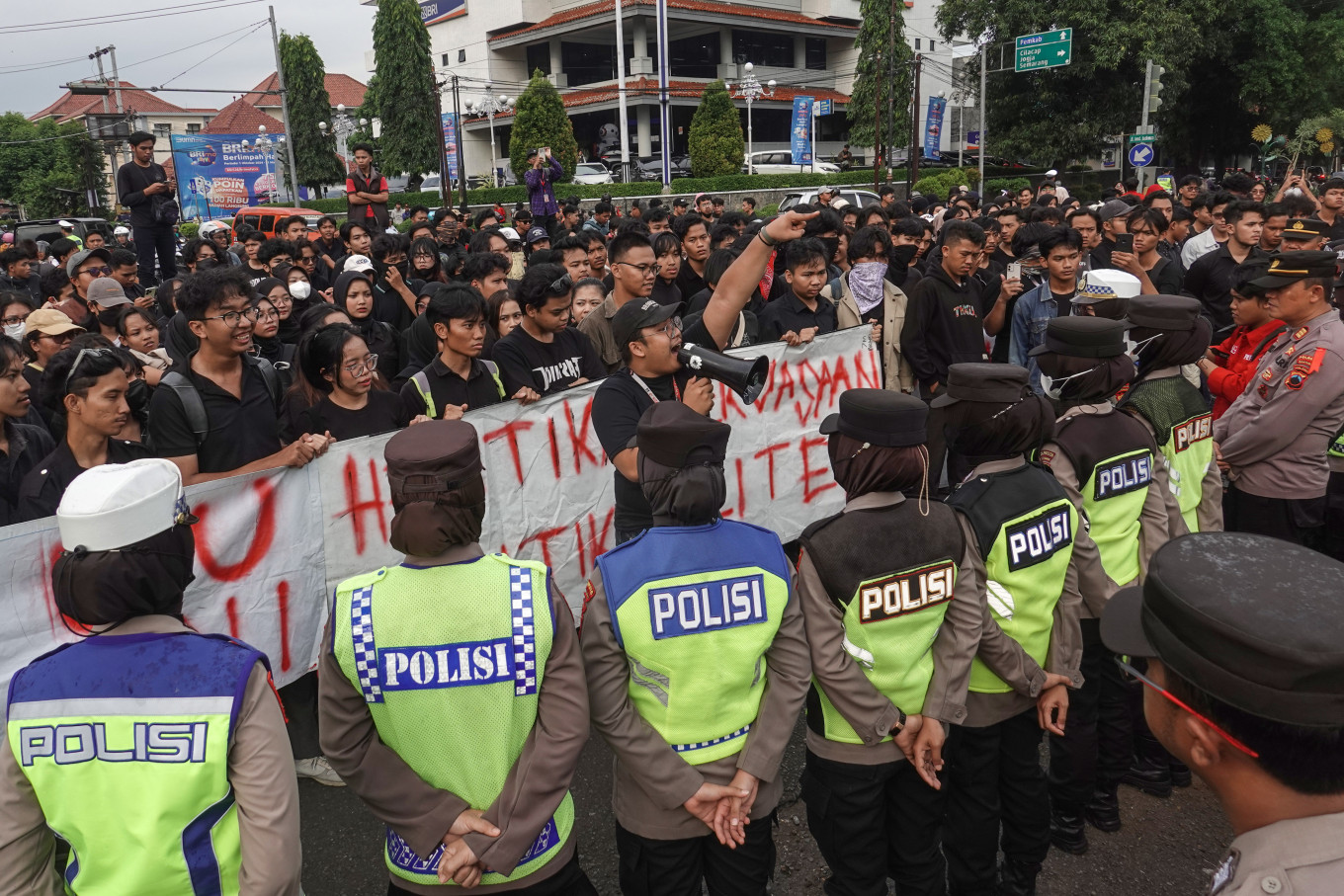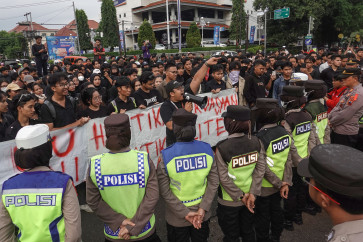Popular Reads
Top Results
Can't find what you're looking for?
View all search resultsPopular Reads
Top Results
Can't find what you're looking for?
View all search resultsNew TNI Law strengthens hegemonic masculinity in Indonesia
The newly passed TNI Law revision essentially aims to normalize masculine hegemony in Indonesian society by justifying male dominance across the social, political and economic spheres.
Change text size
Gift Premium Articles
to Anyone
A
year ago, I went to Aceh to interview women survivors of sexual violence during the military operation for my thesis. The revision of the Indonesian Military (TNI) Law, passed on March 20, seems to have brought back the memories of the victims, who have not received justice they deserve.
Society has responded with anger. The new law carries serious consequences, as it grants the TNI not only a mandate for national defense, but also a greater role in policymaking and governance. We experienced and witnessed the destructive power of the military’s dual function in the past; now history looks set to repeat itself.
When it comes into effect, the revised TNI Law will have wide-ranging implications, particularly in shaping social structures and norms imbued with the values of hegemonic masculinity.
Hegemonic masculinity attempts to centralize attributes of “maleness” in the social, political and economic spheres by justifying male dominance. The state believes that the ideal way to maintain stability is through the superior role of soldiers, mostly male, rather than by developing democratic principles through inclusive civic participation.
In fact, hegemonic masculinity has been in place in the country’s various political processes. Unfortunately, the TNI Law revision is one of the most striking manifestations, and the related legislative process has raised numerous questions due to the new law’s hasty and nontransparent implementation.
Moreover, policymakers appear to have “overlooked” pending bills that have been repeatedly introduced in the legislative agenda. For example, the ambiguity of the bill on domestic workers’ protection has sent the wrong message that protecting vulnerable care workers is deemed not as important as soldiers. This is also the case with the indigenous peoples bill.
The new TNI Law not only marks a setback for democracy, but also signals the most tangible practices of militarism and hegemonic masculinity as it continues to exacerbate gender inequality. This is evident not only in terms of female leadership, where most positions in strategic ministries go to men, but also in the fact that the resulting policies tend to lack a gender perspective and prioritize the interests of masculine groups.



















